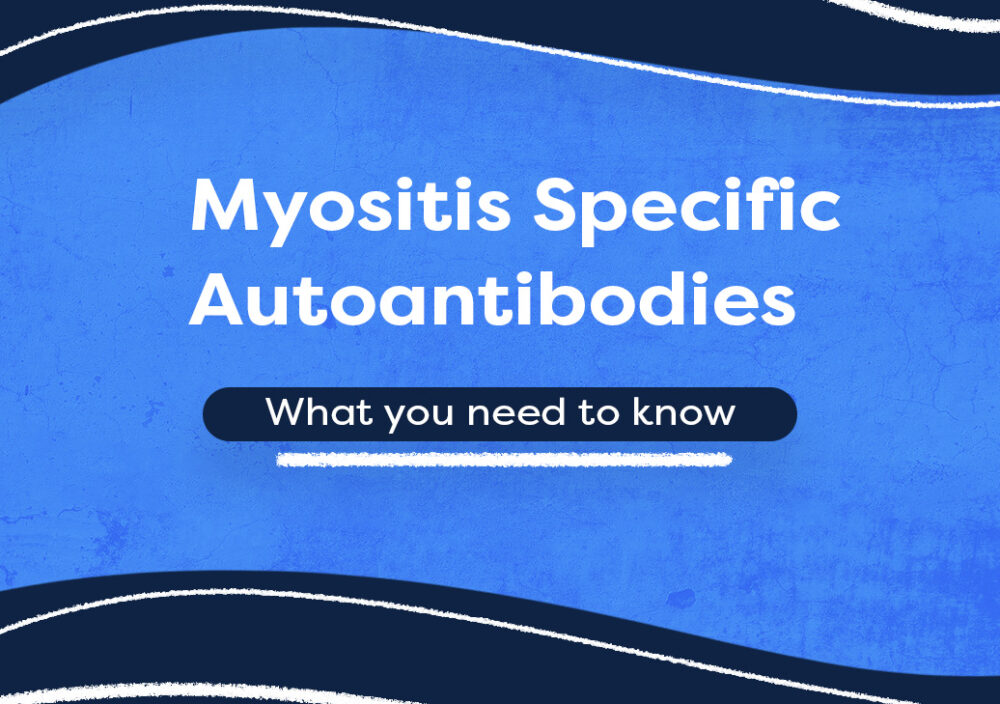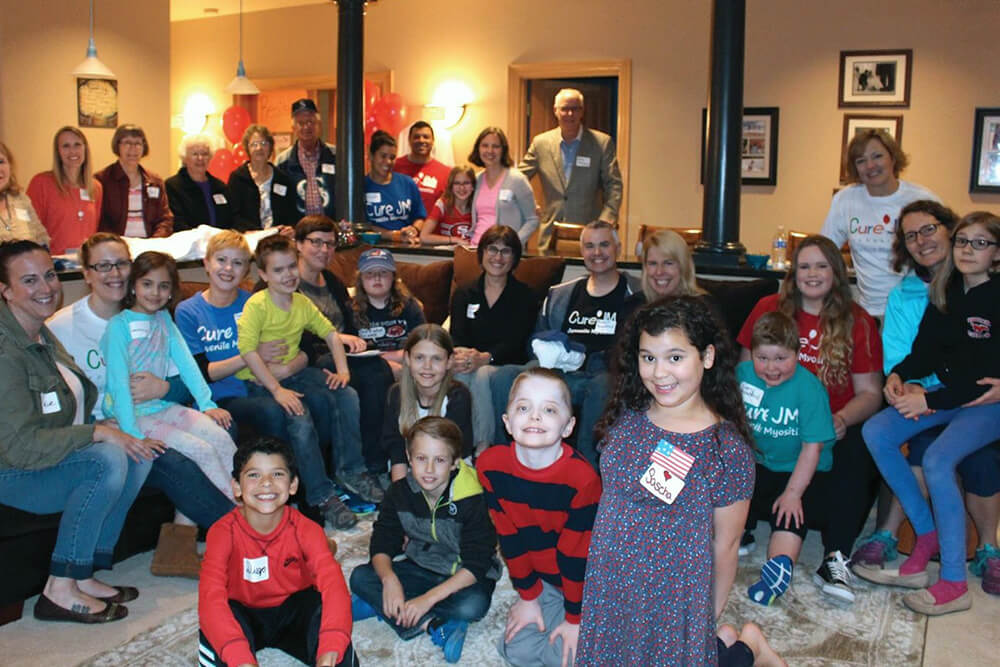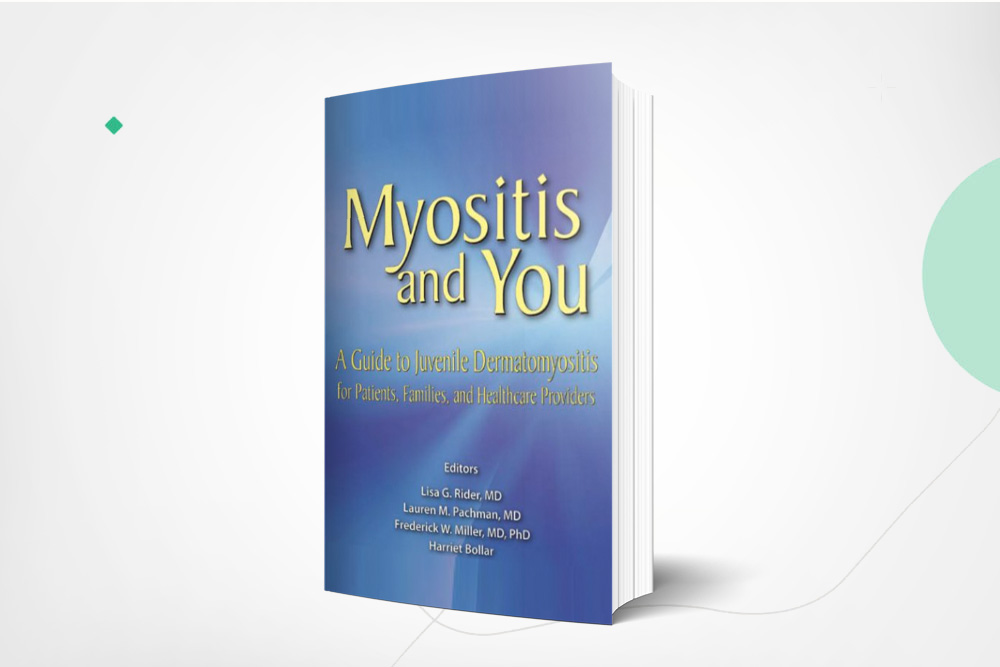First, a few terms to know when talking about Myositis Specific AutoAntibodies.
- Antibodies are specialized proteins made by your immune system to fight off unwanted invaders, like bacteria, viruses, and toxins. They are like tiny soldiers that patrol your body, constantly on the lookout for threats.
- Autoantibodies are misguided defenders who mistakenly target your own body’s healthy cells and tissues. (Auto means self. So autoantibodies are proteins that are attacking yourself)
- Myositis specific autoantibodies, which we call “MSA’s”, are a special type of autoantibodies. They are attacking the child’s own body in a way that causes JDM.
So why do we talk about Myositis Specific Autoantibodies?
We know that JDM is different for every child. One of the reasons it is different is because of the MSAs. Since the autoantibodies are attacking the body, by understanding these “misguided fighters,” we can understand how the JDM will affect the child and the best ways to treat it.
When a protein (or antibody) is programmed to attack the body, it is programmed in a certain way so that it knows what part of the body to attack. It may be programmed to go after the skin, muscle, or organs. By analyzing the protein, we can read those signals and understand what part of the body that fighter was going to attack. And just like in a battle, by knowing that protein’s attack plan, it equips us better to stop the attack.
For example, we can identify if a MSA is programmed to attack the skin. This would help us understand that the JDM may present with skin rash and can help guide the best treatment strategies to address this skin rash. A different MSA might be programmed to attack the muscles, or the lungs, or cause calcinosis. This information is helpful when choosing the best treatment path.
So how does this information help your child?
We also know that some MSAs respond better to certain treatments than others. So by understanding MSAs — and what part of the body those proteins are attacking — we can better target the treatments. This additional knowledge can help reduce some of the “trial and error” often involved in treating JDM.
So are there any downsides to all of this?
Right now, MSAs are an emerging field and there are important considerations for families to consider. First, MSA’s are not always present. Approximately half of all JDM patients do not test positive for a currently-known MSA. This doesn’t mean that they do not have JDM, it just means we haven’t yet discovered the MSA that they have. Research to discover more MSA’s is ongoing.
Second, because MSAs are an emerging field, interpreting the results are complex. Interpreting the MSA results requires expertise and must be considered with the full picture of the child’s health.
Third, for the test to be accurate it should be done at a specialized lab. We recommend asking your clinician if they think that testing for MSA’s would be valuable. If they would find the MSA’s helpful to know, the labs can be sent to https://omrf.org/wp-content/uploads/2021/04/CIL-Requisition-2021-04-14.pdf
For more information visit these resources:
Myositis-specific antibodies (MSAs) are associated with certain symptoms in JM patients. In some cases, knowing the MSA of a patient may help clinicians look out for certain symptoms and guide treatment decisions. Dr. Jessica Neely explains these associations, why they are important, and the limitations in our understanding of the role of MSAs in JM.
Jessica Neely, MD, is a Pediatric Rheumatologist at the University of California, San Francisco. She diagnoses and treats children with all types of autoimmune diseases and is also a clinical and translational researcher. Dr. Neely is a member of Cure JM’s Clinical Care Network.
This presentation introduces you to Myositis Specific Antibodies or MSAs and addresses important questions, including the following:
How are MSAs tested, and what is their value?
How have myositis-specific antibodies improved our understanding of myositis by identifying clinical patterns that help doctors understand how the disease might progress in patients with certain MSAs?
What is the value of understanding MSAs to help further personalize treatment options that your clinical team may consider?
Featuring: Sara Sabbagh, D.O., is a clinician scientist who specializes in the care and research of patients with juvenile myositis. Upon completion of fellowship at the Children’s National Medical Center in Washington, D.C. and the National Institutes of Health, National Institute of Arthritis, Musculoskeletal, and Skin Diseases, Dr. Sabbagh received specialized training in juvenile myositis assessments under the direction of Dr. Lisa Rider at the National Institute of Environmental Health Sciences, NIH. She also held an affiliate faculty appointment at George Washington University, where she saw juvenile myositis patients at the Medical Faculty Associates Myositis Center, Cure JM Center of Excellence.




